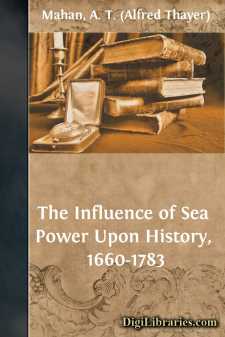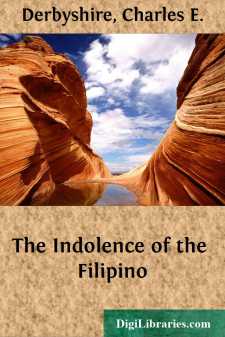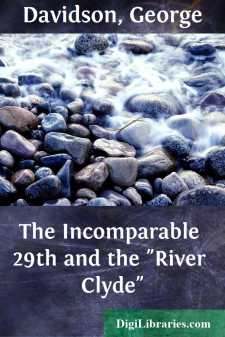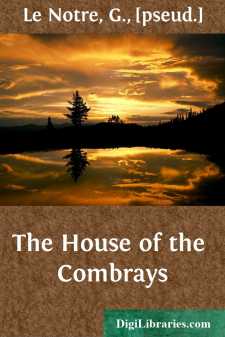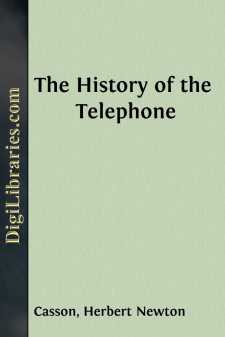History
- Africa 30
- Americas (North Central South West Indies) 50
- Ancient 68
- Asia 58
- Australia & New Zealand 8
- Canada 41
- Caribbean & West Indies 1
- Civilization 20
- Eastern Europe 12
- Europe 310
- Expeditions & Discoveries 60
- General 77
- Historical Geography 1
- Jewish 9
- Latin America 3
- Medieval 8
- Middle East 13
- Military 248
- Revolutionary 8
- Study & Teaching 5
- United States 353
- Western Europe 56
- World 13
History Books
Sort by:
RECOLLECTIONS OF THE PARISIAN INSURRECTION. The desire of appreciating de visu the results of a five month's siege in a town of two million inhabitants, unexampled in the annals of humanity, made me leave London on the twentieth of March. Hardly landed in the Capital of France which I thought of finding tranquil and occupied in exercising its genius in repairing the disasters caused by the enemy,...
more...
INTRODUCTORY. The history of Sea Power is largely, though by no means solely, a narrative of contests between nations, of mutual rivalries, of violence frequently culminating in war. The profound influence of sea commerce upon the wealth and strength of countries was clearly seen long before the true principles which governed its growth and prosperity were detected. To secure to one's own people a...
more...
I DOCTOR Sancianco, in his Progreso de Filipinas, (1), has taken up this question, agitated, as he calls it, and, relying upon facts and reports furnished by the very same Spanish authorities that rule the Philippines, has demonstrated that such indolence does not exist, and that all said about it does not deserve reply or even passing notice. Nevertheless, as discussion of it has been continued, not...
more...
BIOGRAPHICAL NOTE The author of this book was born in a teepee of buffalo hide near Redwood Falls, Minn., during the winter of 1858. His father was a full-blooded Sioux called "Many Lightnings," (Tawakanhdeota). His mother, the granddaughter of Chief "Cloud Man" of the Sioux and daughter of a well-known army officer, died shortly after his birth. He was named Ohiyesa (The Winner). The...
more...
THE INDIAN QUESTION. On the 3d of March, 1871, Congress declared that "hereafter no Indian nation or tribe within the territory of the United States shall be acknowledged or recognized as an independent nation, tribe, or power, with whom the United States may contract by treaty." Brave words these would have seemed to good William Penn, treating with the Lenni Lenape, under the elm at...
more...
by:
George Davidson
DIARY. March 16th, 1915.—After serving for five months as a lieutenant in what was at first known as the 1st Highland Field Ambulance, and afterwards, as the 89th Field Ambulance, I left Coventry, our last station, to do my little bit in the great European War, our destination being unknown. We had heard well-founded rumours that we were going to the Dardanelles, or somewhere in the Levant, and our...
more...
by:
G. Le Notre
CHAPTER I THE TREACHERY OF JEAN-PIERRE QUERELLE Late at night on January the 25th, 1804, the First Consul, who, as it often happened, had arisen in order to work till daylight, was looking over the latest police reports that had been placed on his desk. His death was talked of everywhere. It had already been announced positively in London, Germany and Holland. "To assassinate Bonaparte" was a...
more...
by:
Julian Hawthorne
INTRODUCTION When we speak of History, we may mean either one of several things. A savage will make picture-marks on a stone or a bone or a bit of wood; they serve to recall to him and his companions certain events which appeared remarkable or important for one or another reason; there was an earthquake, or a battle, or a famine, or an invasion: the chronicler himself, or some fellow-tribesman of his,...
more...
CHAPTER I. THE BIRTH OF THE TELEPHONE In that somewhat distant year 1875, when the telegraph and the Atlantic cable were the most wonderful things in the world, a tall young professor of elocution was desperately busy in a noisy machine-shop that stood in one of the narrow streets of Boston, not far from Scollay Square. It was a very hot afternoon in June, but the young professor had forgotten the heat...
more...
English writers have done more for the illustration of Spanish history, than for that of any other except their own. To say nothing of the recent general compendium, executed for the "Cabinet Cyclopaedia," a work of singular acuteness and information, we have particular narratives of the several reigns, in an unbroken series, from the emperor Charles the Fifth (the First of Spain) to Charles...
more...



